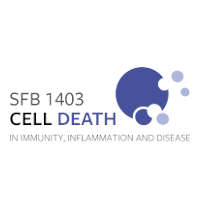Harnessing TRAIL-induced cell death for cancer therapy: a long walk with thrilling discoveries.
Abstract
Tumor necrosis factor (TNF)-related apoptosis inducing ligand (TRAIL) can induce apoptosis in a wide variety of cancer cells, both in vitro and in vivo, importantly without killing any essential normal cells. These findings formed the basis for the development of TRAIL-receptor agonists (TRAs) for cancer therapy. However, clinical trials conducted with different types of TRAs have, thus far, afforded only limited therapeutic benefit, as either the respectively chosen agonist showed insufficient anticancer activity or signs of toxicity, or the right TRAIL-comprising combination therapy was not employed. Therefore, in this review we will discuss molecular determinants of TRAIL resistance, the most promising TRAIL-sensitizing agents discovered to date and, importantly, whether any of these could also prove therapeutically efficacious upon cancer relapse following conventional first-line therapies. We will also discuss the more recent progress made with regards to the clinical development of highly active non-immunogenic next generation TRAs. Based thereupon, we next propose how TRAIL resistance might be successfully overcome, leading to the possible future development of highly potent, cancer-selective combination therapies that are based on our current understanding of biology TRAIL-induced cell death. It is possible that such therapies may offer the opportunity to tackle one of the major current obstacles to effective cancer therapy, namely overcoming chemo- and/or targeted-therapy resistance. Even if this were achievable only for certain types of therapy resistance and only for particular types of cancer, this would be a significant and meaningful achievement.
Read more at Cell Death Differ (2022).
